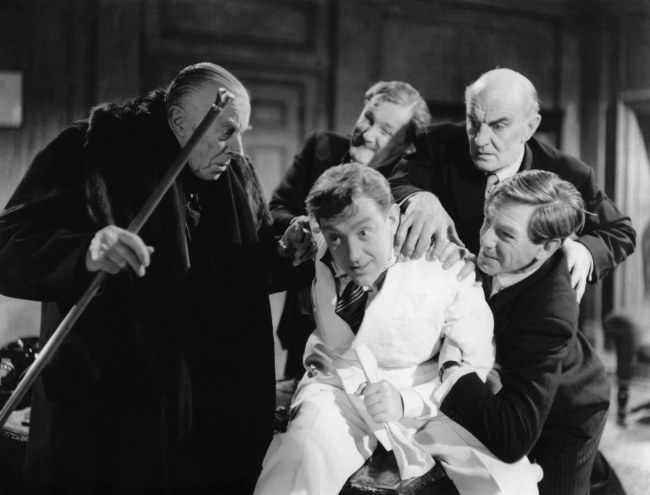Science has long reduced drudgery while expanding economies, but what if it forgets to do the latter? Alexander Mackendrick’s 1951 Ealing comedy looks at the purgatory a society becomes when work is drastically reduced but workers are not. It’s a time much like our own.
Sidney Stratton (Alec Guinness) is a brilliant if haphazard chemist who’s been bounced by Cambridge and a string of textile firms due to his curious, combustible research projects, many of which end in literal explosions. But most explosive of all is his new invention: a fabric that can’t be dirtied or damaged and never wears out. Stratton has the indestructible fabric fashioned into a white suit and is prepared to present it to the press but neither Capital nor Labor is quite so sanguine about a magical material that will cause profits to plummet and displace workers. Soon, Stratton is on the run, his life’s work on his back, being pursued by suits and overalls alike.
Made during the decade when economist Joseph Schumpeter redefined the Marxist term “creative destruction” to mean innovations that bring with them uncertain times and painful adjustments, Mackendrick’s satirical comedy presaged the vocational tumult of the Information Age, when numerous careers have been disappeared into the 0s and 1s of an unblinking computer screen. “I admit some will suffer,” says one the film’s seemingly forward-thinking captains of industry, “but I will not stand in the way of progress.” As if any of us could.•
Tags: Alec Guinness, Alexander Mackendrick, Joseph Schumpeter

